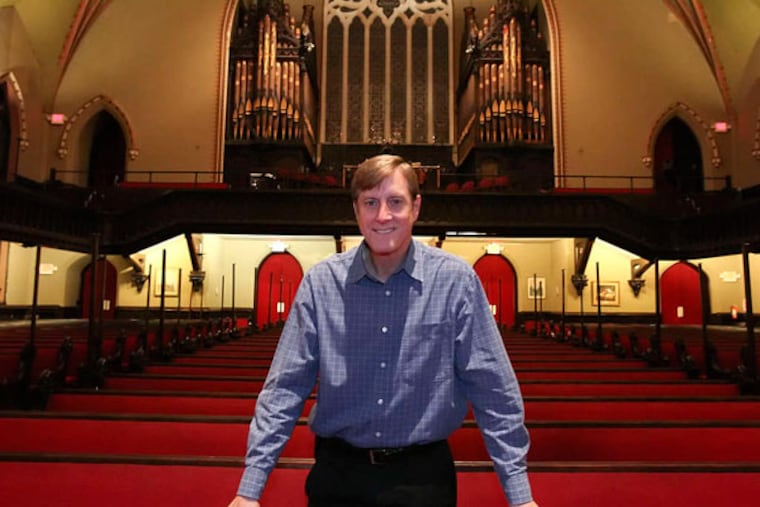Sermons rewritten across the region in wake of Charleston
When he heard the names of those killed in the Charleston, S.C., church shooting, the Rev. Robin Hynicka wrote all nine on a white index card, tucked it in his shirt pocket, and started to search for the right words to deliver on Sunday.

When he heard the names of those killed in the Charleston, S.C., church shooting, the Rev. Robin Hynicka wrote all nine on a white index card, tucked it in his shirt pocket, and started to search for the right words to deliver on Sunday.
"It's not hard to make the decision to go there. But it's an emotional and spiritual challenge," said Hynicka, pastor of Philadelphia's Arch Street United Methodist Church. "You have to take a leap of faith to begin to engage."
Hynicka was one of many faith leaders who in the wake of Wednesday's shooting put their planned sermons - some still in process, some already complete, several focused on Father's Day - to the side and tried to find a new message in the tragedy.
Josh Meyer, pastor of Franconia Mennonite Church in Montgomery County, said he didn't want to let go of a finished sermon about what he learned about faith from playing football with his father. But on Friday night, he went to a wedding and spoke to a guest who, Meyer felt, was minimizing the role racism played in the killings.
"Ours is a large, 98 percent white church," Meyer said Saturday, as he sat at his office working on his new sermon. "And I feel like it's especially important for churches like this to speak out about these issues."
He will preach, instead, on how people of faith respond to tragedy.
Grieving. Honoring the lives lost. Condemning. Forgiveness. And finally, action, "as if we ourselves were suffering."
Meyer said he rarely preaches from a script but this week wanted to chose his words deliberately. He expected to be writing into the evening.
The Rev. Martini Shaw, on the other hand, will go into Sunday's sermon with few notes.
As pastor of the African Episcopal Church of St. Thomas, the oldest black church in Philadelphia, Shaw said he still wants to "lift up Father's Day," while also lifting up the victims in prayer. He will return to two commandments his faith is built on: "to love God and trust God, and to love thy neighbor as thyself."
Several pastors said they found inspiration in the gospel reading scheduled for this week: the story of Jesus and his disciples being stuck in a storm at sea.
"I really want to help people to understand that the storm is happening to us, that this isn't just happening to some other community," said David Tatgenhorst, pastor of St. Luke United Methodist Church in Bryn Mawr.
Daniel Ruff, the Jesuit pastor of Old Saint Joseph's Church in Old City, said he would preach that the violence in Charleston is one example of "the storms that surround us."
Linda Noonan, senior pastor at Chestnut Hill United Church, sought to define that storm: "For me, this week in particular, the storm itself is kind of racism plus access to guns equals Charleston," she said.
Rabbi Shawn Zevit of Mishkan Shalom in Roxborough said he invited members of his congregation to share personal experiences during Shabbat services Saturday morning as a way to respond to violence by not only thinking "of our anger and what to do in response, but also to claim the power of love and justice and unity."
On Saturday, Hynicka still had the index card in his pocket. On one side, notes swirled around a question he plans to ask his congregation Sunday.
"Who is missing from my circle of friends?" he said. "We can't just live in isolation and live in circles in which we only have a little bit of understanding of what it's like to be a human being in this world."
The sermon was still evolving, as he expects it will be for some time.
"It will not be finished until I'm finished [Sunday]. And it won't be finished when I'm finished [Sunday]," he said. "I'm going to be writing this sermon probably for the next month."